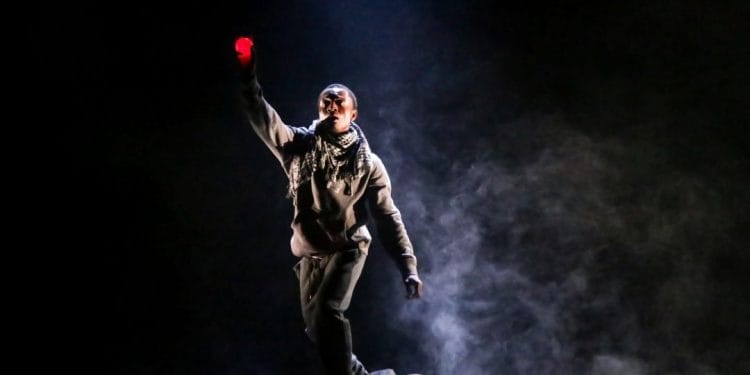Following its acclaimed premiere in spring 2017, good dog by Arinzé Kene (Netflix’s Crazyhead; BBC’s EastEnders; Channel 4’s Youngers; Girl From the North Country, West End; Misty, Bush Theatre and West End) prepares to embark on its second national tour from January 2019.
Directed by tiata fahodzi’s artistic director Natalie Ibu, good dog is a true epic spanning multiple characters, families and years. Mum’s promised him that bike so even when school or homelife bites, he knows to keep his chin up, his head down and his shirt clean.
No harsh word, no sudden push to the ground will distract him from growing up to be a good man. Because in the end, everyone who’s good gets what they deserve. Don’t they? Set during the early noughties, good dog tells the story of growing up in a multi-cultural community, and the everyday injustices that drive people to take back control. When prejudiced voices are amplified, the arts must remind us of the humans obscured within the propaganda storm.
The inspiration for Kene’s delicately observed and fearlessly-told play stemmed from a desire to imagine what drove his friends and community to riot in the summer of 2011 – in London and beyond – but it has become a chronicle of a community struggling to survive and fighting back.
This richly imagined, political and personal piece of theatre introduces an overlapping network of multi-faceted characters and stories that explore significant issues for today such as social decay, institutional racism, drug abuse and bullying.
Natalie Ibu comments, “It’s a real thrill to be able to bring back Arinzé’s play – an astonishing love letter to the people and places that leave their mark on your life – and tour it to more places, meeting more people. In the wake of the Brexit vote, it was a troubling thesis about what happens when you are unseen and unheard, and this only gets louder as time goes on. At tiata fahodzi we pride ourselves in seeking out stories that see those who sit outside the singular narrative. We refuse to oversimplify the African diaspora and, instead, relish the complexity. We want to multiply the narratives – about ourselves and each other – and debate the mixed experience of Britain today and tomorrow.”



















